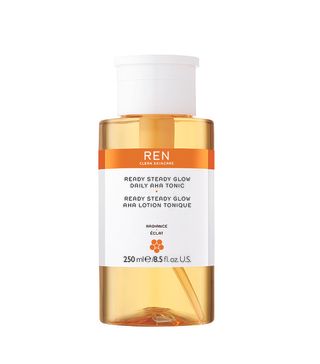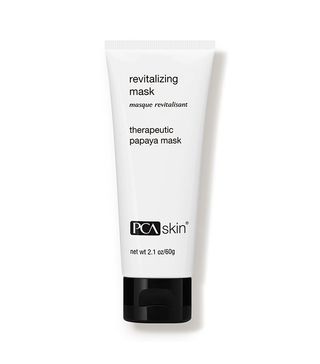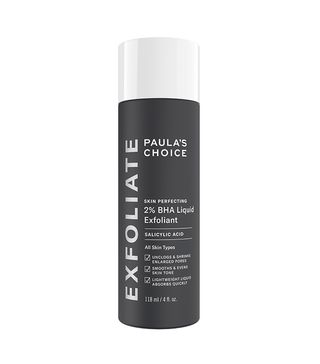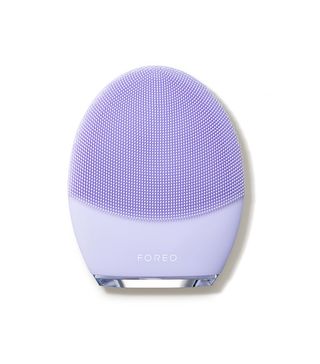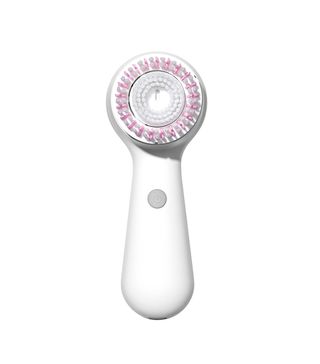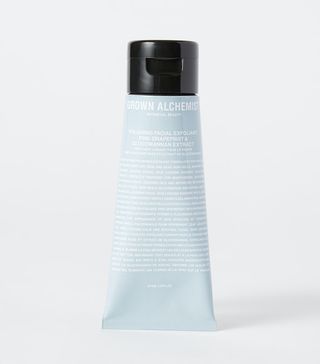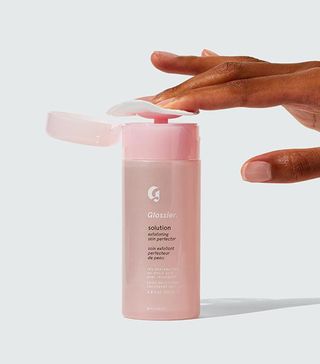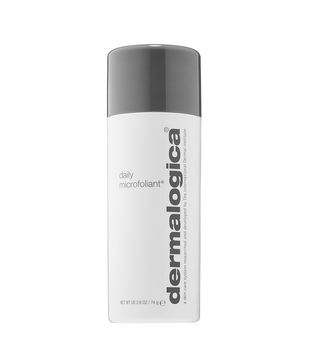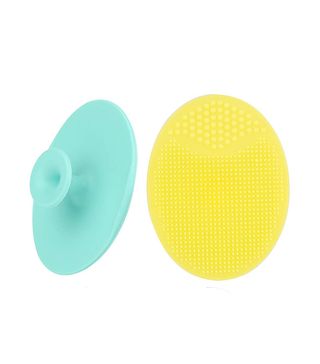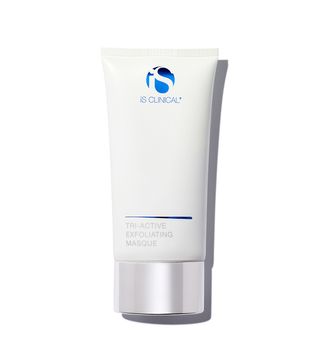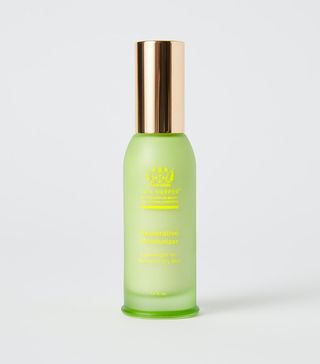I Didn't Think I Was Exfoliating My Face Correctly—Turns Out I Was Right
For the most part, my skincare routine was working for me. I knew which products really helped my skin and which ones didn't. Aside from the bouts of annoying dry patches thanks to eczema, I didn't really have many complaints. I also wasn't one to question what I thought was a good thing.
All of that stopped when I started writing about beauty a few months ago. You see, I'm the managing editor of Who What Wear's sister site, THE/THIRTY, so my whole realm is about what foods to eat, what workouts to try, what activewear to buy… You get the idea. I let Who What Wear's beauty editors, Erin Jahns and Courtney Higgs, answer all of my questions about makeup, skincare, and hair. But now that I've recently been moonlighting as a beauty writer, I've been questioning everything. Prime example? See all I learned about sunscreen here.
So as I've been discovering, researching, and learning all there is to know about the beauty world, of course, I've been taking a good hard look at my skincare routine. Sure, it was working, but was I doing everything correctly? It was part curiosity and part my type A personality.

One skincare step I really had doubts about was how I exfoliated. Sure, I knew it was important, but I wasn't very good at remembering to exfoliate. I was a facial-scrub kind of girl, and there were days I'd forget that step. Then, of course, there would be weeks when I'd be on top of it. The lack of a set routine left me with dull, flaky skin on the days I'd forget.
So it wasn't a surprise when I realized I was making an exfoliating mistake after interviewing several dermatologists. What was I guilty of? Totally ignoring the many effective and easy-to-use chemical exfoliants out there. By relying on just my scrubs (and forgetting to use them regularly), I was exfoliating less and my skin wasn't living up to its true potential (dramatic, but probably true). For reference, "chemical" exfoliants usually contain acids like alpha hydroxy (glycolic and lactic), beta hydroxy (salicylic), and polyhydroxy. "Mechanical" or "physical" exfoliants are scrubs, sugars, loofahs, or brushes.
You see, I was always turned off by the word "chemical" when it came to exfoliants. It sounded scary, and I imagined a harsh product totally screwing up my dry skin. So I was shocked when board-certified dermatologist and founder and director of Chicago Cosmetic Surgery and Dermatology Carolyn Jacob, MD, FAAD, told me this: "Chemicals may sound more aggressive yet can often be gentler than mechanical exfoliants, which are physical scrubs."
And I learned that the chemical products were even easier to incorporate into your skincare routine because a lot of cleansers and toners have those ingredients built-in, so you might even be skipping that extra step. That made me think I would be less likely to forget when it was automatically included. And if you're not exfoliating, it's pretty simple to introduce to your skincare lineup. "A good starting point is to just start incorporating a mild chemical exfoliating cleanser or wash into your routine once a week," suggests Caroline Robinson, MD, FAAD, board-certified dermatologist and founder of Tone Dermatology.
But Wait—Why Do I Need to Exfoliate My Face?

As I was stressing about my lack of regular exfoliation, I also questioned the reasoning behind it. Yes, it's good for your skin, but in what way? For me, I always saw it as a means to an end—the end of those flaky bits of skin I would get from dry patches. Of course, I learned it's much more than that.
In addition to sloughing off dry skin, exfoliation helps reduce the appearance of dull skin and uneven skin tone. It can help prevent breakouts. It can make your other products work even better. And it especially helps as you get older and your skin doesn't have as much cellular turnover and sebum production slows—exfoliation can stimulate new cell growth.
A good exfoliation routine can start in your early 20s. "We actually start to get one of the first signs of aging—dullness—and that starts to appear around 25 or so, when you just notice that your skin isn't as glowy, and so incorporating some exfoliation, starting with that change, is important," Robinson says.
How Should I Exfoliate Based on My Skin Type?
Skincare is super individualized, so of course, everyone has different exfoliation needs, and it all depends on your skin type. I asked dermatologists to break it down for me.
Mature Skin
Board-certified dermatologist and founder of Specific Beauty Heather Woolery-Lloyd, MD, says that people with mature skin should be careful because the skin is more sensitive to over-exfoliation. She recommends exfoliating once weekly or less with a soft-bristle brush or a mild glycolic product.
"Most mature skin tends to be a bit drier, so enzymes are a good choice, like those found in the Revitalizing Mask by PCA Skin," adds Jacob. "Some mature skin can experience menopausal acne, but it can't be treated the same way we treat teenage acne. Gentle exfoliants, retinols, and peels are still a good choice for them. "
Acne-Prone Skin
Woolery-Lloyd recommends once- to twice-weekly exfoliation with chemical products like salicylic acid or glycolic acid. She says you can even use it daily if there is no irritation.
Sensitive Skin
Woolery-Lloyd recommends people with sensitive skin exfoliate once weekly or less frequently. She also suggests using a soft-bristle brush.
Combination Skin
Those with combination skin will also benefit from once-weekly or less-frequent exfoliation with a soft-bristle brush, according to Woolery-Lloyd.
Normal Skin
If you have normal skin, Woolery-Lloyd recommends once- to twice-weekly (depending on tolerance) with a chemical or mechanical exfoliant.
Dry Skin
Woolery-Lloyd suggests exfoliating once-weekly or less frequently, and you can use a soft-bristle brush, too. She also says you should avoid exfoliation completely if your skin is very dry and sensitive.
If you want to try a chemical exfoliant, Robinson says sensitive and dry skin types can still try gentler or milder exfoliants, like PHAs, lactic acid, and glycolic acid.
What Are Other Ways I Could Be Exfoliating Wrong?
Not taking advantage of chemical exfoliants might have been my exfoliating mistake, but there are a couple of other ways you can miss the mark when it comes to this skincare step. To make sure I had all my bases covered, as a last question, I asked the dermatologists for some other common mistakes people make.
Choosing Aggressive Scrubs
"Any scrubs with large particles like apricot pits should be avoided, as they can cause micro-tears in the skin—at any age," says Jacob. "Anything that is too drying or used too frequently should also be avoided."
This one from Dermalogica is a rice-based powder that gently micro-exfoliates.
Over-Exfoliating
"Over-exfoliation is a big problem, and people often end up at the dermatologist office with a rash and irritated skin," says Woolery-Lloyd. "This is most common with chemical peels done at home or very aggressive use of a strong spin brush."
Using Too Many Products
Don't overdo it by doubling up on products. "A comprehensive skincare routine can incorporate both chemical and physical exfoliants," says board-certified dermatologist Joyce Imahiyerobo-Ip, MD, FAAD, owner of Vibrant Dermatology and Skin Bar MD in the greater Boston area. "However, I do not recommend that these be used simultaneously. The best thing to do is to start with a weekly application of one type of exfoliant and incorporate additional exfoliating slowly and cautiously. If you have any questions or concerns, your dermatologist can help you design a routine that works well for you."
Not Prepping or Treating Your Skin
While not much prep is needed before you exfoliate, it's recommended you cleanse your face before to remove any makeup or dirt. And all of the dermatologists say that you should moisturize immediately after to protect and restore the skin barrier.
Face Exfoliators We Recommend
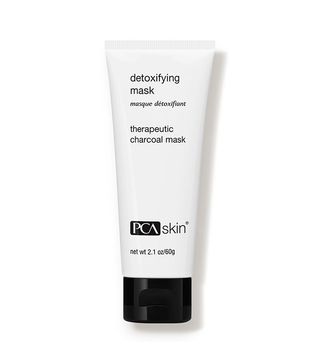
"Oilier skin can handle more frequent exfoliation and can benefit from the application of charcoal to remove oil and debris," Jacob says. "The Detoxifying Mask from PCA Skin is a great choice."
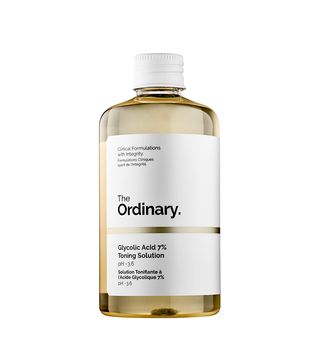
The Ordinary's toning solution is good for all skin types and works to reduce dullness and uneven texture. Along with 7% glycolic acid, it contains Tasmanian pepperberry derivative, ginseng root, and aloe vera to soothe and brighten.
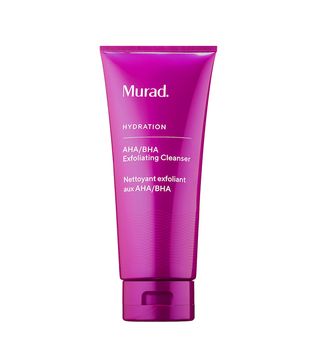
This cleanser is formulated with three acids—salicylic, lactic, and glycolic—to gently exfoliate. It's also got sodium PCA, which leaves the skin hydrated.
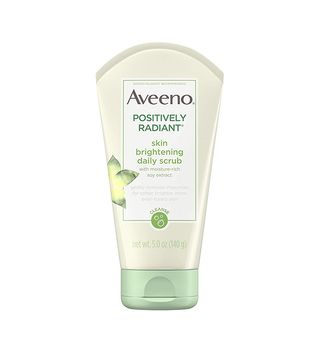
Along with microbeads, this gentle scrub has soy extract and jojoba and castor oils to leave the skin soft and radiant.
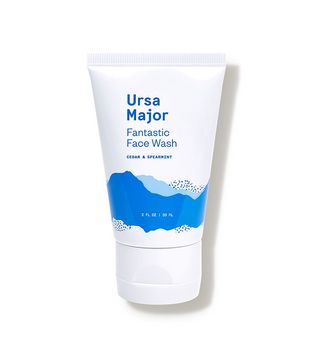
Robinson recommends this face wash, which she says has a blend of both AHAs and BHA for uniform gentle exfoliation.
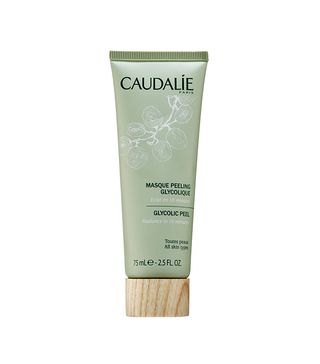
You can also try an exfoliating mask, like this glycolic acid peel. In 10 minutes, the product works to remove dead skin cells and brighten your complexion.
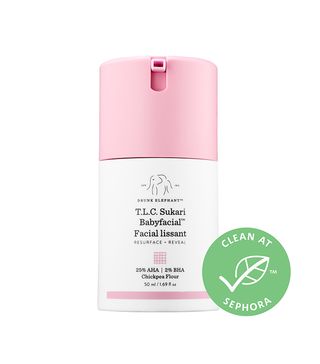
Drunk Elephant's Babyfacial peel contains a 25% AHA blend and 2% BHA to exfoliate skin and support cell turnover. It's recommended to use this once weekly.
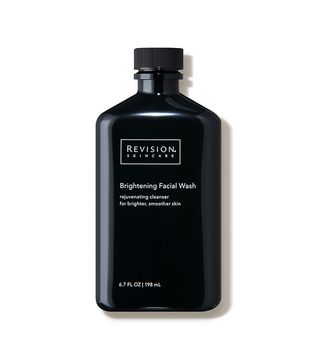
This is another recommendation from Robinson, who says it "has a blend of salicylic acid and glycolic acid as well as several antioxidants for gentle exfoliation and brightening."
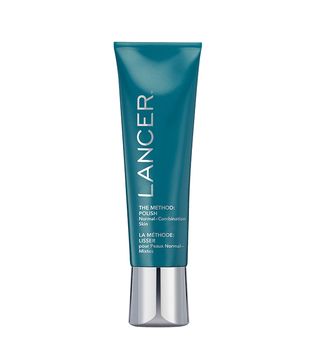
Formulated for normal and combination skin, this daily exfoliator has natural quartz, sodium bicarbonate crystals, and pumpkin and pomegranate extracts to remove dead skin cells. And it doesn't leave your skin dried out, as brown sea algae provide moisture.
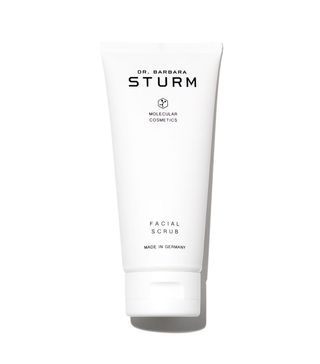
Not only does this scrub get rid of flaky skin, but it also promotes cell renewal and epidermal regeneration thanks to ingredients like vitamin A and purslane. It also contains horse chestnut to stimulate microcirculation.
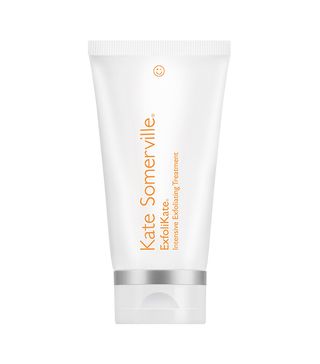
Designed for people with dry, normal, combination, and oily skin, this product is a cleanser, scrub, peel, and mask in one. Ingredients include natural AHAs, silica, lactic acid, and fruit enzymes. It's recommended to use this once or twice a week.
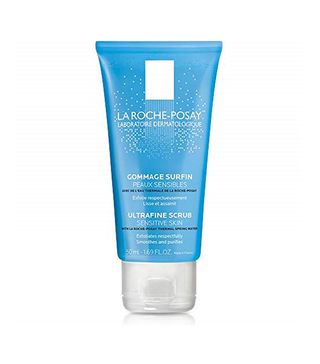
This scrub both has chemical and mechanical exfoliants to buff away dead skin, promote cell turnover, and leave skin looking flawless. It's got a light water-gel texture, so it will feel so soothing on skin.
Next up, dermatologists rank the four worst exfoliating mistakes.
Sarah is lifestyle writer and editor with over 10 years of experience covering health and wellness, interior design, food, beauty, and tech. Born and raised in Los Angeles, she attended New York University and lived in New York for 12 years before returning to L.A. in 2019.
In addition to her work on THE/THIRTY and Who What Wear, she held editor roles at Apartment Therapy, Real Simple, House Beautiful, Elle Decor, and The Bump (sister site of The Knot).
She has a passion for health and wellness, but she especially loves writing about mental health. Her self-care routine consists of five things: a good workout, “me” time on the regular, an intriguing book/podcast/playlist to unwind after a long day, naps, and decorating her home.
